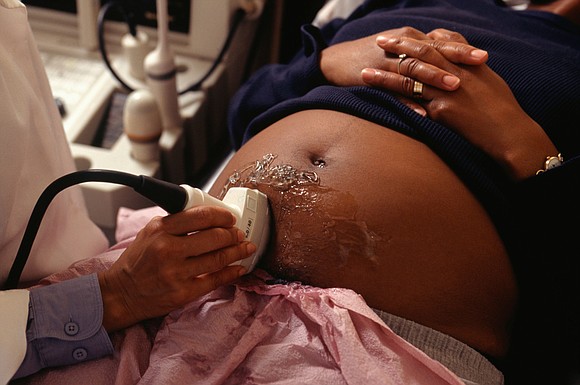1 in 5 women – and even more Black, Hispanic mothers – report mistreatment during maternity care, according to CDC report
CNN/Stylemagazine.com Newswire | 8/22/2023, 2:47 p.m.

Originally Published: 22 AUG 23 13:09 ET
Updated: 22 AUG 23 14:50 ET
By Deidre McPhillips, CNN
(CNN) — About 1 in 5 women were mistreated while receiving maternity care, and nearly a third faced discrimination, according to a new report from the US Centers for Disease Control and Prevention.
The negative experiences were even more common for Black, Hispanic and multiracial mothers: About 30% of Black and Hispanic mothers reported mistreatment during maternity care, and about 40% reported discrimination.
“As a healthcare community, we need to do all we can to make sure we are delivering equitable and respectful care to women during pregnancy and delivery,” Dr. Debra Houry, chief medical officer for the CDC, said in a statement. “Health systems, hospitals, and providers can take steps to improve care and lower the risk of pregnancy-related complications and death for all women. These data show that we must do better to support moms.”
The findings are based on a survey of more than 2,400 women who have at least one child under the age of 18. The survey was conducted in late April, and women were asked to respond based on the experience they had when delivering their youngest child. That was at least five years ago for most, and the findings may not be nationally representative.
Nearly 10% of women said that health care providers ignored them, refused requests for help or took an unreasonable amount of time to respond to requests, according to the CDC report. Nearly 7% of women – about 1 in 15 – said they were shouted at or scolded by doctors, midwives or nurses, and nearly 4% were threatened by their health care providers. Other experiences of mistreatment included violations of physical privacy and withholding or forcing treatments.
Overall, about 1 in 10 women said they experienced discrimination because of their age or weight. About 1 in 8 Black mothers said they were discriminated against because of their race.
“Our system is broken for all women, but Black women bear the brunt of those inequities,” said Nastassia Harris, a member of the Association of Women’s Health, Obstetric & Neonatal Nurses and founding executive director of the Perinatal Health Equity Initiative. “A lot of that has to do with racism, the intersection of sexism and misogynoir, and how that actually impacts how Black women are seen and perceived in the health space.”
The maternal mortality crisis continues to worsen in the US, with rates rising sharply in recent years. And vast disparities persist, as Black women were more two times more likely than average to die from pregnancy or childbirth in 2021.
Experts say that respectful maternity care – including equitable treatment and effective communication – is a key part of improving treatment and reducing pregnancy-related deaths.
“We know that discrimination during prenatal care may be associated with reductions in seeking care,” said Dr. Wanda Barfield, director of the CDC’s Division of Reproductive Health. “We do know from this study that women are reluctant to report their concerns. And we do know that as a result of not voicing concerns, there may be an increased risk for pregnancy-related complications for both mom and baby.”
Nearly half (45%) of all women said they didn’t ask questions or discuss concerns with maternity care providers, most often because they thought what they were experiencing might be normal. At least 1 in 5 also said they held back because they felt embarrassed and didn’t want to make the issue into a big deal or because they were worried their maternity care provider might think they were being difficult.
Another CDC report from last year found that more than 84% of women who died during pregnancy, during delivery or up to a year postpartum death could have been avoided.
“Pregnancy is not an illness, and it does not require high-risk care to be delivered,” Harris said. “Had we been listening to these symptoms, had we been paying attention, we could have intervened and stopped a lot of these poor outcomes from happening.”
Despite the mistreatment and discrimination, the vast majority of women said they were satisfied with the care they received while pregnant or delivering their child, according to the new CDC report.
“I liken it to battered women’s syndrome. You’re so used to being mistreated that you don’t often recognize it,” Harris said. “And I think if these women experienced what it looked like to be loved on, to be holistically cared for, they would see a sharp contrast in how they were cared for in these dynamics.”
Reducing mistreatment and discrimination during maternal care and creating safer experiences will require investment across the broader health care system, experts say.
“We know that actions like hiring and retaining a diverse workforce and providing health care provider trainings on unconscious bias and stigma can help improve the quality of care,” Houry said. Doulas and midwives can serve as advocates for new mothers, and health care systems can better support these models, she said.
“The health of moms reflects the health of our nation,” she said. “We can all support women who are pregnant and postpartum and getting the care they need.”



